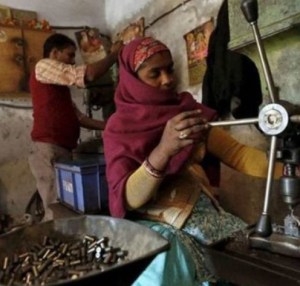Top 3 SPAC Targets – India
SPACInsider contributors Anthony Sozzi and Sam Beattie this week compiled their three favorite potential SPAC targets among companies in India. We look at why they are compelling and why each could be a fit for a blank-check merger.
Everything is bigger in India, as the country that in some ways is the Texas of Asia can increasingly assert. It contains more than 17% of the world’s population and may soon also produce the largest SPAC deal in history, but, aside from that, it also has hosts few US-listed companies relative to its size.
India hasn’t been spared the effects of supply chain challenges and other macro slow-downs. But, the World Bank still expects it to grow 8.7% in the fiscal year ending March 31, 2023, revising this projection upwards by about 1.2% since June last year. This is also nearly the double the projected growth rate of the rest of the South Asian region, and the highest projected GDP expansion on the whole Asian continent.
As for that mega-deal, edtech firm Byju has been rumored for two months to be in talks for a SPAC transaction that would value it at $48 billion. This would be a silly number if it were not for the fact that the SPAC rumored to be closest to an agreement is Churchill Capital VII (NYSE:CVII), with more than $1.3 billion in trust and the demonstrated ability to raise PIPEs in the billions as well.
To put that valuation into perspective, it would be larger than the cumulative enterprise values of all 2021 SPAC targets in all but three of 17 sectors that SPACInsider tracks – electric vehicles, financial services and technology. The Churchill team currently ranks 6th among all serial sponsors in terms of return on investment and the big-game nature of its target searches can have a trend-setting nature.
If Michael Klein is looking at India now, what else might other teams find there?

Urban Company
Amazon (NASDAQ:AMZN) may have designed itself to be “the everything store” and Gurugram, India’s Urban Company has been working to make itself the “every service outlet.”
It is similar to Yelp (NYSE:YELP) in its business model in providing a marketplace platform for businesses, and making this searchable for consumers by location. A means for centralizing the approach to this is particularly needed in India where its consumer sector is largely fragmented. Small and medium enterprises in India (SMEs) represent about 45% of the country’s total production and 40% of exports, more than double their share in the US.
According to its own studies, service vendors selling through its platform earn about 50% more those not on Urban Company. And, with many of these entities being individual practitioners like hairdressers and home repair professionals, they also earned up to four times more hourly earnings from their work by being on call on Urban Company.
The latter stage of every developing economy includes an expansion of its service sector. SPACs and their investors could find a particularly attractive entry into that rise in India through Urban Company, which last achieved a valuation of $2.1 billion in a June 2021 Series F raise. This last raise included frequent SPAC-backers Tiger Global Management and Dragoneer Investment Group.
It has also been been expanding rapidly abroad with branches in Saudi Arabia, Singapore and the UAE. It recently made its US entry, with offices in Austin, Texas and a SPAC-listing could help accelerate its growing footprint in the world’s largest service market.

Mankind Pharma
Mankind Pharma would follow one of the more successful SPAC deals in the developing world in Procaps (NASDAQ:PROC).
Procaps is not a biotech firm, but manufactures the physical pills that consumers gulp down out of facilities in Latin America. It has also outperformed the broader biotech sector as a SPAC target group since its close with Union II in September. It slipped below $10 in the recent moths of challenging market conditions, but its fall to $9.25 at Thursday’s close counts as a minor setback compared to the wider SPAC market.
Mankind is available as a copycat play as it manufactures antibiotics and antifungals as well as generic medications for a wide range of conditions including gastrointestinal, cardiovascular and dermatological issues. It also makes drugs for sexual dysfunction, which, with the right marketing team, could allow it to compete in the growing direct-to-consumer (DTC) pharma space that has seen both SPAC deals and IPOs in the Western Hemisphere in recent years.
It also presents the kind of stable and revenue-generating target that may be an easier sell for SPACs in the current market. It gained a $3.5 billion valuation in its last funding round in 2018, but has not brought in outside equity capital since.
If it has aspirations beyond being a base manufacturer, Health Assurance (NASDAQ:HAAC) may be a SPAC that could help it achieve them. It raised $525 million in its November 2020 IPO and is led by Chairman and CEO Hemant Taneja, who, as a managing partner at General Catalyst, has invested in DTC pharmaceutical platform Ro Health.
OfBusiness
Pills are just one of many things manufactured in India’s vast industrial sector, however. And, as mentioned above, much of the country’s production is represented by smaller enterprises without their own vertically integrated supply chains.
 OfBusiness serves 7 million of these SMEs by providing both a marketplace for raw materials that promises lower group-purchasing prices as well as financing tools to allow these businesses to purchase materials quickly on credit over 90-day cycles. This positions it as both a centralized supplier for Indian industry and a fintech player providing working capital accessible for businesses via an app.
OfBusiness serves 7 million of these SMEs by providing both a marketplace for raw materials that promises lower group-purchasing prices as well as financing tools to allow these businesses to purchase materials quickly on credit over 90-day cycles. This positions it as both a centralized supplier for Indian industry and a fintech player providing working capital accessible for businesses via an app.
It has built the latter part of this network in partnership with about 50 lender partners. And, its connection to materials suppliers gives it a narrower focus that may have the potential to dodge some of the pitfalls of other working capital finance startups like Kabbage in the West.
For SPACs, OfBusiness could present an opportunity to invest capital upstream of supply chain issues, but still with the dynamic growth potential that fintech has promised in recent years. With a $5 billion valuation cemented by a December capital raise, the SoftBank-based company may also be looking for an event that would let out some investors that have been with it through 11 equity rounds dating back to 2016.

